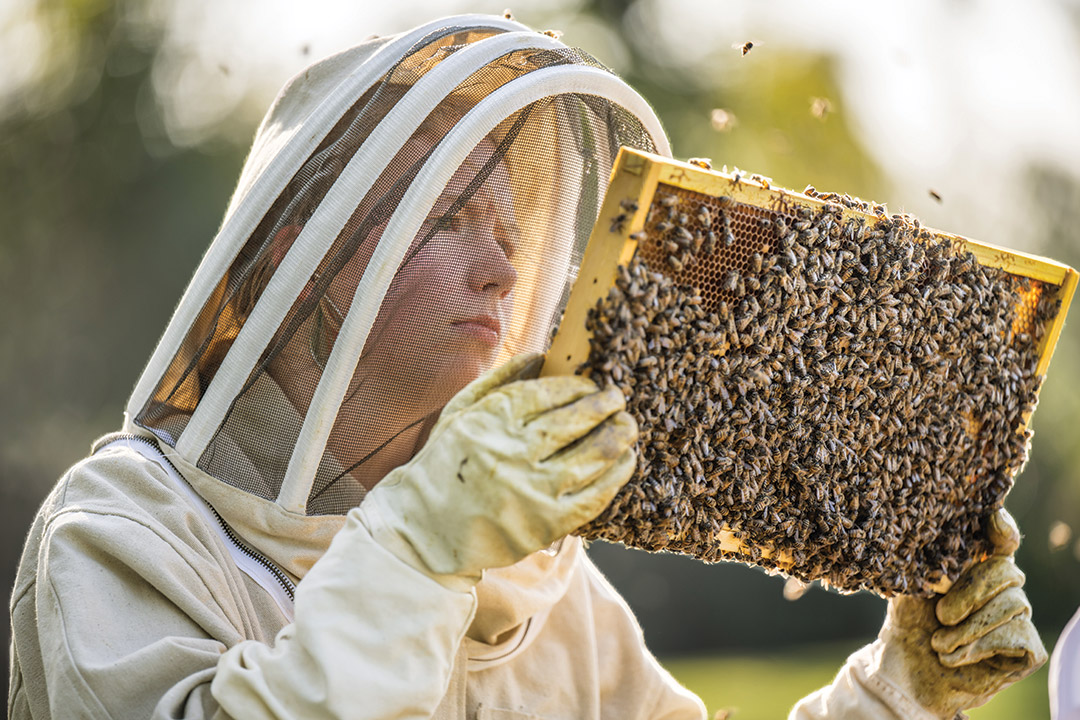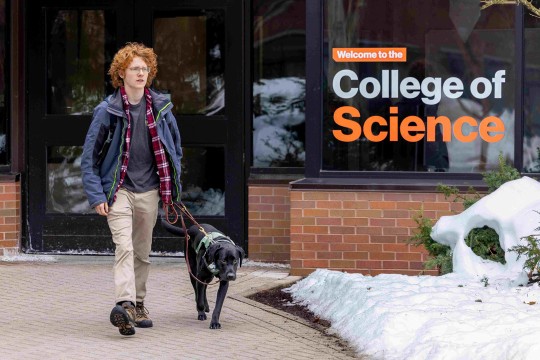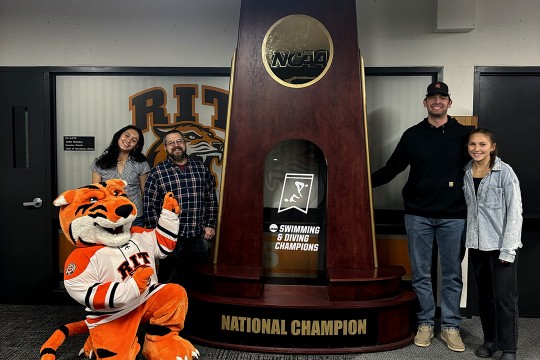Activities outside of class keep students buzzing
Traci Westcott
Ellie Warren, a third-year biomedical sciences and Spanish double major, helps oversee four hives and some 100,000 bees on campus. The RIT Beekeeping Club is one of more than 300 student clubs.
When Ellie Warren was in high school, her grandfather introduced her to beekeeping. She got a scholarship to take bee classes and buy a protective suit, bees, and hives for them to live in.
When it came time for the class to talk about what they had learned six months later, everyone else’s bees had died.
“I had three hives; the bees were all alive and making honey,” Warren said.
Today, her grandfather back in Hilliard, Ohio, takes care of her bees while she keeps busy overseeing the four hives and some 100,000 bees that reside near the RIT tennis courts as president of the RIT Beekeeping Club. It’s just one of more than 300 student clubs on campus involving art, gaming, music, politics, science, sports, and theater.
Warren, a third-year biomedical sciences and Spanish double major, plans to take care of people, too. She intends to become a physician and has been accepted into the State University of New York Upstate Medical Center program in Syracuse after she graduates from RIT.
Keeping bees healthy isn’t just a hobby. It’s part of her commitment to help the environment and to educate others about the importance bees play in the ecosystem. She visited elementary schools last year to talk with students about beekeeping and the importance of pollination. She knows sign language and has also given a tour of the hives to students at RIT’s National Technical Institute for the Deaf.
“I’m an environmentalist because of seeing how the bees interact with the world around them,” she said. “Everything is truly connected, and when the bees start dying and the world starts warming and having more severe weather events, humans, animals, and plants are all affected.”
The 30-50 active members of her club attend weekly visits to the hives. The club holds meetings to teach members how to make crafts and soap from beeswax and honey. Once a year, they extract honey.
They also hold lectures with topics such as diagnosing a disease in a hive, environmental changes such as mosquito fogging and global warming that may harm bees, and the role of beekeepers in politics.
Last summer, Warren had a research internship in Massachusetts where, coincidentally, a beekeeping conference was being held. She got to attend sessions about educating the next generation of beekeepers and the environmental impact on bees.
Warren has become more politically aware of climate control measures and the lack of them.
“I vote for the people who would make positive climate change policies and share information about voter registration on my social media in hopes that people will vote like their lives, and the bees’ lives, depend on it. Because they do.”




